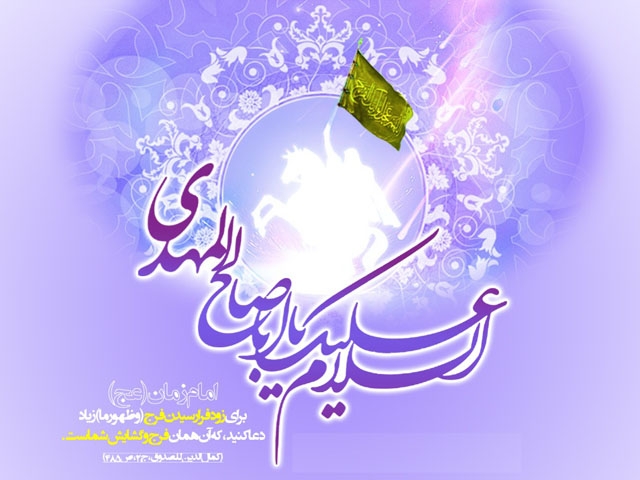
QUESTION:
Which verse of the Noble Qur’an can be cited regarding the authority (wilayat) of the twelve Imams (peace be upon them) and the just government of Imam Mahdi (may Allah hasten his return) and the supremacy of Islam over the world?
ANSWER:
The verses from whose purport it is understood that the twelve Imams—may Allah elevate their word—have authority and Imamah are many in number.
Among them is the verse:
“You are but a warner, and every people has a guide.” Surah Ra’d (13), Verse 7
And the verse:
“My covenant reaches not the oppressors (and only that group of your descendants is worthy of this position who are pure and infallible).” Surah Baqarah (2), Verse 124
and the verse:
“Thus is one who guides to the truth worthier of being followed?” Surah Yunus (10), Verse 35
These verses indicate this point since from them one understands that society is not without an Imam, the infallibility of the holder of the station of Imamah, and his being more knowledgeable than others, and this issue is among the exclusive convictional principles of the Shi‘a. And from the verse:
“O’ ye who have brought faith! Obey Allah and obey the Messenger and those in authority among you (the trustees of the Prophet).” Surah an-Nisa’ (4), Verse 59
This doctrine of the Shi‘a—that the Imam and ruler must be infallible—is understood. This is because in this verse obedience to those in authority has been commanded in an absolute manner. Obedience to the Prophet, which is in all affairs, has been expressed together with obedience to those in authority in one word—the imperative verb أطيعوا, “obey!”
It is obvious that someone whom the believers have been ordered to obey absolutely in such a way must be infallible and far removed from errors and mistakes, and as it is undisputed that from among the Islamic sects only the Shi‘a believe in the infallibility of the Imam.
In addition to this, commentaries and reliable traditions also indicate that the intent of the noble verse “Obey Allah…” and other verses is the twelve Imams (peace be upon them), and in these commentaries, the blessed names of these personages are also mentioned explicitly.
As for the supremacy of Islam in the world and its overcoming all religions, it is sufficient to pay attention to verses 32 and 33 of Surah at-Tawba, verse 28 of Surah al-Fath, verses 6 and 8 of Surah al-Saff, and numerous other verses. In them, the promise of appearance and true religion’s overcoming all religions has been given, a promise that will come to pass with the appearance of Imam Mahdi (may Allah hasten his return), and this is inviolable.
In regard to the appearance of Imam Mahdi (may Allah hasten his return) in particular, many verses have been elucidated to refer to it, which exceed one hundred verses in all. The book Al-Mahajja fi ma Nazala fi al-Qa’im al-Hujja (The Final Destination Regarding What Has Been Revealed About the Twelfth Imam) has collected all of them.
Among those verses is this verse:
“Allah has promised those who have believed among you and do good deeds that He shall certainly make them rulers in the earth as He made rulers those before them and shall make firm for them their religion which He has chosen for them and shall change their fear into security; they will worship Me and associate none with Me, and whoever disbelieves after that, it is they who are the iniquitous.” Surah Nur (24), Verse 55
and this verse:
“And we desire bestow a favor on those deemed weak in the land and make them leaders and make them inheritors.” Surah Qasas (28), Verse 5
and the verse:
“And verily We have written in the Zabur (Psalms) after the Remembrance that my righteous servants will inherit the earth.” Surah al-Anbiya’ (21), Verse105













